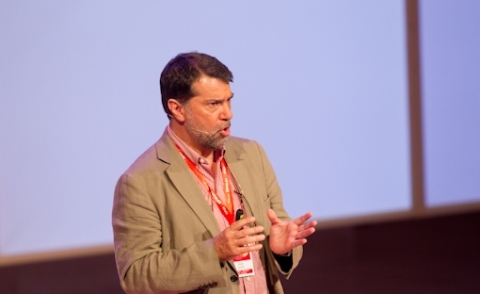All lives have the same value, regardless of the passport a person holds or the colour of their skin. Even in the 21st century, the place you are born in determines your chances of leading a fruitful and healthy life. This lack of equality is an offence to all humanity.
We are in the middle of the biggest revolution in the history of mankind, on a par with the discovery of fire or the wheel. During the past hundred years humanity has progressed in the most basic aspect: the possibility of simply living. Infant mortality has fallen considerably, it is an extraordinary change, we are living in a prodigious century. In the last 25 years the average lifespan has increased by 25 years, something which had not happened in the previous 10,000 years.
The power of science and the willingness of politicians to take an interest have led to the eradication of a disease: smallpox. The vaccine has reached every corner of the planet. In the next two years the international community should be able to make polio, which now only exists in four countries, disappear too; and in the next eight to ten years, measles.
The vicious circle of disease and poverty. The poorer you are, the more likely you are to get ill; and the more you get ill, the poorer you will be. Diseases that are the consequence and cause of poverty: malaria, tuberculosis, AIDS. These diseases killed almost six million people in the world in 2011, and 95% of the cases occurred in developing countries.
Science and improving health can help the process of development in the poorest countries. Within this conceptual framework, and from the Barcelona Institute for Global Health, we have extended the model to numerous countries, starting in Mozambique. The research model to promote development. Biomedical research to specifically help these communities. In the case of malaria, for example, the key lies in understanding the behaviour of the mosquito, understanding how the body reacts, understanding the community’s habits, understanding how children react. We do this in collaboration with different branches of knowledge: economists, sociologists, anthropologists, immunologists, biologists... So that Mozambique’s own researchers play a role in the improvements.







